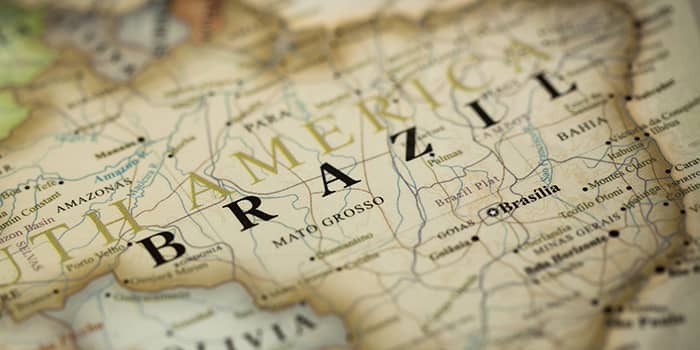
Ahead of the planned la.unch of legal betting in the country, more than 100 operators have shown interest in the market.
The exponential growth of sports betting across the United States proved to be a success. Since 2018, the statewide legalization of the activity enabled it to expand to nearly 40 states, which currently offer a legal form of betting, allowing millions of Americans to place bets via regulated operators.
In 2023, lawmakers in Brazil legalized sports betting. Although legalization was much expected, it came near the end of the year with sports fans and bettors alike hoping that legal betting will launch at some point either in the second or third quarter of this year.
Operators that want to offer their services to customers in Brazil would have to pay approximately $6 million as a license fee. Unless further changes are implemented, betting operators will be subject to a 12% tax on gross gaming revenue (GGR). Compared to the US market, the tax rate is in the middle range, considering that Kansas imposes a 10% tax while betting operators in Ohio are subject to a 20% tax, for example. Still, taxes across the US vary from one state to the other with Nevada imposing the lowest tax rate of 6.75% and New York having the highest, 51%.
In a recent interview for Sportico, Waterhouse VC’s principal, Tom Waterhouse, spoke about the exponential potential of the regulated betting market in Brazil. He revealed that the lucrative market has captured the attention of 140 operators who are currently planning to enter the market.
Speaking about challenges to the sector, the expert acknowledged that regulated markets in different parts of the world have similarities. “Regulated markets are quite similar. What we saw in the UK and what we’ve seen in Australia and the US is they mirror each other in the sense there’s such a benefit to having scale and operational leverage,” explained Waterhouse.
In his opinion, it is imperative for the operators to have a scale and growing presence to ensure their competitiveness in the sector. Otherwise, Waterhouse said, taxes and sales would “take up too much of your gross win, and you haven’t got enough to spend on the user experience and marketing” to keep bettors engaged.
“It’s going to be similar to the US, because it’s going to be a while before (sportsbook) operators make money because they’re going for a land grab.“
Tom Waterhouse, principal at Waterhouse VC
Waterhouse predicted that operators with an already established presence and affiliates will be able to take a significant market share in the regulated sector in Brazil. He said that the expansion of the sector is likely going to mirror the US market, where operators first fought for market share before they started making money.